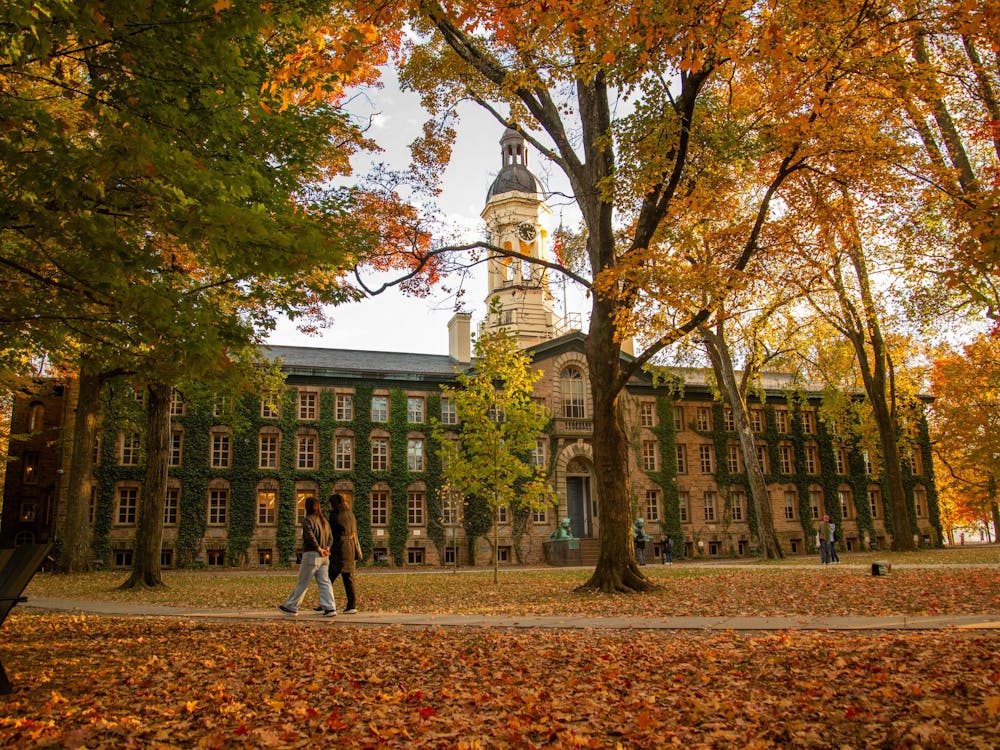Eschatology, the theological science of the Last Things so important for the understanding of much medieval literature, turns out to have a modest branch relevant to the Academy. I am practically awash in last things. I've given my last lecture and conducted my last preceptorial. I've directed my last senior thesis and written my last thesis comment. A few lasts still remain: last Honors meeting, last farewell party, last Commencement. Today, it's my last column.
It must be toward number 300, but my spotty records go back only to 1995, so I cannot say for sure. People have been generous with suggestions of ways I might spend my time in retirement, including that I might try to recuperate a full bibliography of my fugitive pieces. I have higher things in mind, like Court TV. But I do remember when in the early '90s the new chairman of the 'Prince' first approached me. Like so many before and since, he brought a reformer's zeal to his high office. He wanted to make the paper broader in appeal, more catholic in tone, more adventurous of initiative. Bill Clinton in recently naming his first cabinet had said that he wanted it "to look like America." This editor wanted his masthead "to look like Princeton." Its writers would include undergraduates, graduate students, administrative staff, even a faculty member. "After all, if you look at it from a certain point of view," he told me, "the faculty are an important part of the University too." Flattery will get you anywhere. The rest is history.
My learned books and essays mined with strenuous labor over months and years from the hidden chambers of the world's great libraries got me tenure and respectful footnotes in other learned books and essays. Only my 'Prince' columns, often written in an hour on trains or airplanes, have involved me in a large weekly international correspondence. They have been anthologized, blogged, plagiarized, refuted, excoriated, stretched upon the cruel rack of the Internet and even fatwaed. Through them I have made life-changing connections. This is not a bad showing for a professor of medieval literature, but it is one enabled only by the special genius of this place.
So the theme of this last column must be my sincerest gratitude for the inestimable privilege of living and working for four decades in this community of scholars, Princeton University, which when it is true to its best aspirations still brings together the young and old, students and faculty, to join in fruitful and often joyous collaborations of the mind and heart. I speak of its "best aspirations" for there are others less good but of siren voice and dangerous attractive powers.
During the last few weeks, I have basked in a bright sunshine of affection and undeserved adulation. I have received messages of retirement congratulations, probably in the hundreds, from former students. There was an international scholarly conference in my honor at which a number of the world's greatest scholars of medieval Franciscan culture joined in conversation so nearly angelic as to echo the table-talk of Thomas and Bonaventure in the ancient refectories of Paris. I was the subject of an approbatory unsigned editorial on this very page. Having to share its accolades with my friend John Gager was a small price to pay for the association with a literary genre previously unknown to the annals of campus journalism. After the midpoint intermission of one of the most exciting concerts ever heard in Richardson Auditorium, I was publicly proclaimed an honorary member of the Princeton University Orchestra. That must have been on the basis of my charm, because the actual audition left a little to be desired.
The more substantial honor, available to all Princetonians whether they spend 40 years here as I have done or four years as most of you who read this will do, is the privilege of being a part of one of the world's great universities. To live and work as glad learners or glad teachers among the freshness and talent of youth and in the reflected brilliance of noted scholars and scientists, eminent writers and artists, experts in many fields committed to the disinterested pursuit of knowledge and the interested application of human thought to the daunting challenges of the human condition — that is our shared honor. And though there are few occasions when academic taste would allow so bald and unironic a statement of so obvious a piety, surely a last column is one of the few. John V. Fleming is the Louis W. Fairchild '24 Professor of English. He can be reached at jfleming@princeton.edu. He is the recipient of this year's Daily Princetonian award.







